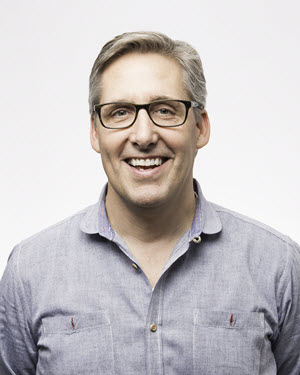
Episode 64: The importance of behaviour change to reduce CO2. Interview with CEO of Rare, Brett Jenks
When we think about the magnitude of global emissions and the scale of the decarbonisation challenge, it is easy to feel that our individual actions are inconsequential. In this episode, we talk to Brett Jenks, President and CEO of the conservation organisation Rare, to look at the crucial role of behaviour change in reducing carbon dioxide emissions. Brett tells us about the practical insights Rare has gleaned on how to facilitate behaviour change– and talks us through a recent report by Rare which found that 30 key carbon dioxide reduction solutions –as outlined in Project Drawdown — depend on behaviour change, altogether amounting to one third of the reductions in greenhouse gas emissions modelled. While different solutions are applicable to different parts of the world, it is clear that behaviour change is crucial. As Brett puts it: “socially we need to change our lifestyles faster than our climate is changing or we’re no longer going to be in control”.
With over twenty years’ experience in harnessing behaviour change for conservation and sustainability efforts, Brett stresses that typical strategies revolving around logic and hard facts are broken and rarely go beyond creating a small but committed constituency. Instead, creating climate smart behaviour is dependent on emotional appeals, social incentives and choice architecture, approaches found in nudge theory. Drawing parallels with the societal changes that have occurred in much of the western world around attitudes to racism, homophobia and sexism, Brett points out that rapid changes in societal norms are possible. Drawing on Everett Rodgers’ theory of the diffusion of innovation he explains how change happens and emphasises the importance of early adopters in making change visible and desirable. In particular, he points to a growing acceptance for plant-rich diets and the rise of Tesla as examples of climate smart behaviours that are starting to move towards an early majority.
Brett also emphasises the importance of building momentum around behaviour change in order to encourage policy shift. He notes that advocacy work by organisations tends to overemphasise the importance of politicians at the expense of social movements, which are often what drive policy change. He also points to how shifting consumer preferences, particularly among eco-conscious millennials are encouraging the market to react accordingly. He also points out that much of this is being facilitated by the radical transparency provided by new technologies, such as blockchain, which are empowering consumers and may eventually allow us to see our carbon footprints as accurately and readily as we see our bank balances.
Brett Jenks is the President and CEO of Rare, a global conservation organization whose mission is to inspire change so people and nature thrive. Rare’s work stems from the belief that the root causes of environmental dangers stem from human behaviour and draws on marketing techniques and technical interventions to equip people in biologically diverse areas with the tools and motivation to protect their natural resources. Under Brett’s leadership the organisation has grown substantially so that it now operates in 56 countries and has reached over ten million people. He has written for The New York Times, Huffington Post, the Stanford Social Innovation Review and other publications. He is a Catto Fellow, Braddock Scholar, and McNulty Prize laureate at the Aspen Institute and serves on the Closed Loop Fund investment committee and Rare’s board of directors. Prior to Rare, Brett was a journalist and filmmaker, and he served as the Costa Rica Field Coordinator for WorldTeach, a non-profit based at Harvard’s Center for International Development.
You can find out more about the report Climate Change Needs Behavior Change: Making the Case for Behavioral Solutions to Reduce Global Warming here. This is an edited version of an interview for the Drawdown Agenda podcast.
The post Episode 64: The importance of behaviour change to reduce CO2. Interview with CEO of Rare, Brett Jenks appeared first on The Sustainability Agenda.

